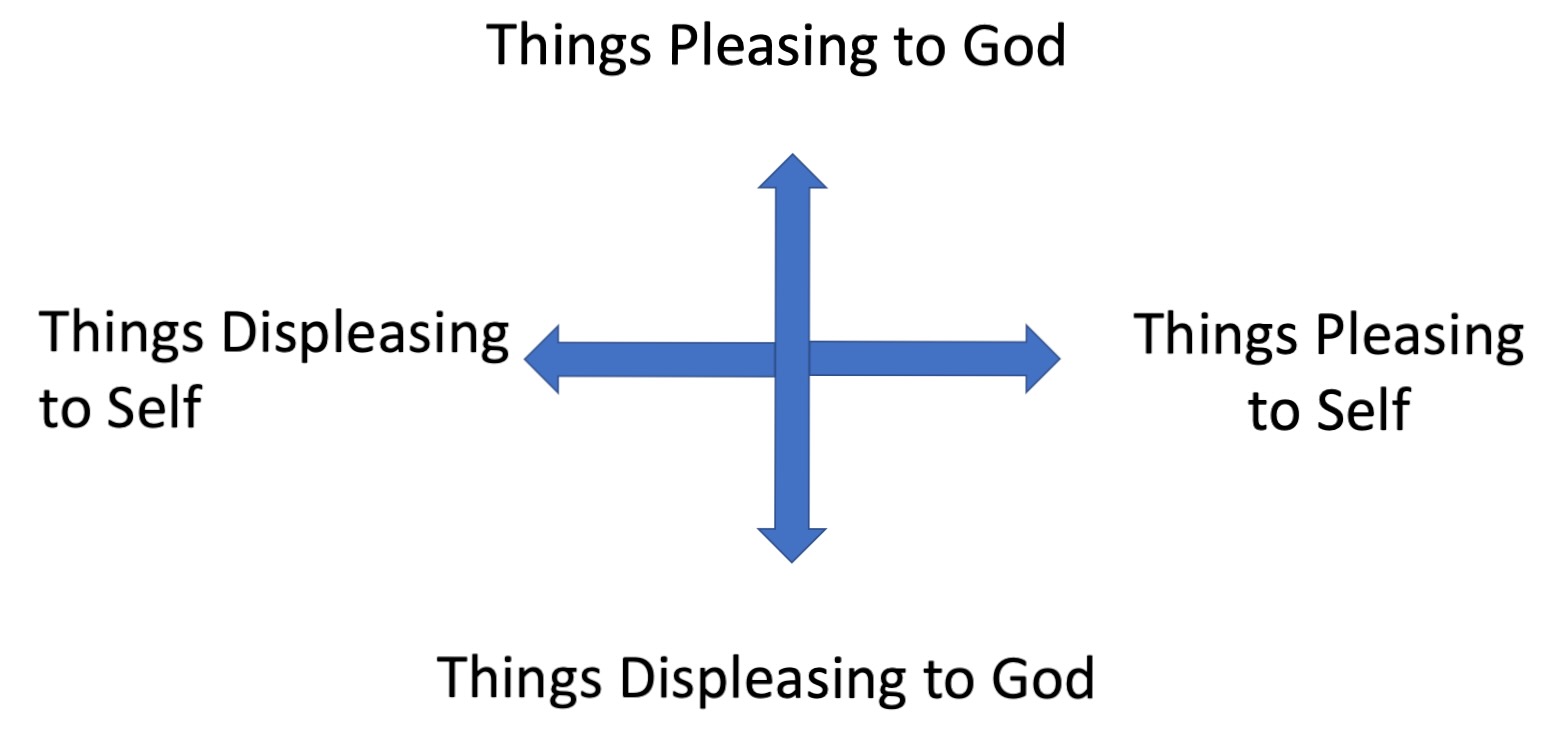Has your mind ever felt so congested with ideas, thoughts, or concerns that you felt paralyzed? If so, you can relate to a young man named Nelson. Nelson traveled to St. Louis to take the entrance exam to West Point. He was from a poor farming family, and his hopes for a college education hinged upon an appointment to the military academy.
Upon his arrival, he learned he would be competing with twelve other young men. His chief competition, much to his chagrin, had been preparing for the exam for over a year.
The exam was scheduled to last four days, with each subject lasting four hours. The algebra exam presented the major obstacle for this young man. It was mandatory to solve 67 percent of the problems. After two hours, he had solved only 20 percent. Discouraged with a congested and confused mind, convinced he was a complete failure, he picked up his papers and walked to the desk of the officer in charge, ready to hand them in. He felt he had wasted everyone’s time, including his own. He was going home, prepared to spend the rest of his life farming.
Arriving at the desk, Nelson noticed the officer deeply engrossed in a book. He did not want to disturb the officer, so he returned to his desk and decided he might as well try one more time.
Then, something remarkable happened. Nelson began to recall the theorems he had studied. He grew enthusiastic and hopeful. After four hours, he had completed more than the necessary 67 percent. The rest of the exams were difficult, yet the young man pressed on.
I have seen Nelson’s grave at Arlington National Cemetery. His tombstone bears five stars. Omar Nelson Bradley received his appointment to West Point, became a hero of World War II, and grew to be one of the most beloved and revered generals in military history.
During his entrance exams, Omar Bradley found temptation to quit. He felt paralyzed, and his emotions urged him to leave. Yet, he remained patient, overcame his feelings, and persevered. He worked from the simple out and found clarity, direction, and success. His determination to follow his purpose guided him through the darkest moments. He has inspired hope in me and many others facing similar challenges.
Over the past few years, I have met several people who have chosen to stay home from work. Nationally, this is a significant issue, particularly for men. In my last post, I discussed how Nicholas Eberstadt chronicles this trend in his highly praised book, Men Without Work. The work rate for men of prime working age (ages 25-54) is at its lowest since 1940, during the Great Depression. One in six men in this group has no paying job. Nearly one in eight is not only out of the workforce but also not looking for work. They “now depend on society instead of produce for society.” Eberstadt labels this “America’s invisible crisis.” This crisis includes members of all races and cultures. It demands our attention and action. Typically, there is a correlation: as fewer males participate in the workforce, rates of drug abuse, crime, and mental illness increase, which leads to more families breaking down.
I’m primarily writing because we have a situation with younger people today where they are unproductive. They’re choosing to stay at home and are growing depressed. It’s a severe issue, so I have come up with ways to prompt motivation and initiative. I want to connect this to God and share with you, in a practical way, what I’ve done. I have formulated a thesis about why this is happening with young people, particularly young men.
Consider this:
- Technology. There is a classic book titled Wisconsin Death Trip by Michael Lesy. He offers accounts from Wisconsin in the late 1800s that showed that in the change of technology, people responded poorly, displaying aberrant behavior, suffering from physical illness, and even committed crime, murder, and suicide. It was a bad time.
- The relationship between young people and the smartphone. You can read books such as “The Anxious Generation “and “iGen” to learn more about how Gen Z has grown more anxious, depressed, suicidal, fearful, and unproductive.
We want young people to achieve their full potential. We want them to feel productive. I’ve been thinking about these issues for the past several years and have devised a diagram that can help guide individuals toward a path that satisfies their desires and aligns with God’s purpose for them.
My diagram consists of four quadrants.

A vertical line that runs north-south across the page. At the north point is the description “Things Pleasing to God.” At the south (bottom of the figure) is a description that notes “Things Displeasing to God.”
There is also a horizontal line running east to west. The left (west) end of the axis reads “Things Displeasing to self.” To the right, the (east) end of the axis, one finds the phrase “Things Pleasing to Self.”
What I encourage young people (but older folks can do this too) to do is to evaluate themselves in this context. First, I assess whether this individual has any interest in doing things that please God. I also attempt to establish whether there is any concern about doing things displeasing to God. This self-evaluation is crucial for personal growth and self-awareness.
Next, I address the aspect of self. Most people are prewired to pursue what pleases them. I help them quantify what displeases them. In this case, we primarily focus on jobs. What jobs would they like to do? What jobs would they dislike performing?
If I perceive that a person shows little interest in pleasing God at this stage, I start by focusing on the self. But I always try to bring God into the equation. And sometimes I have to tease this out. For example, I can ask them:
-Do you believe in God?
-Are you here by accident or by design?
-Did God make you?
-Did God make you for a purpose?
-Do you have talents and abilities by accident or by design?
-If God gave you specific talents and abilities, do you think he has areas in which he would like for you to use them?
I’m trying to guide them toward pleasing God, so the priority is to instruct them that this is the number one consideration. They should choose a job and location that aligns with pleasing God.
Now this is going to eliminate specific options. For example, if the individual is a female, we might rule out prostitution, working in strip clubs, or selling drugs as vocations that please God. The same applies to males–no hiring as hit men, nor is sex trafficking an option. We can clearly identify areas that fall into the bottom quadrant of being displeasing to God.
Then we can consider what pleases the individual. For instance, if someone expresses a desire to be a farmer, I would affirm that this is positive. The next step is to consider whether this profession pleases God. We would need to drop any jobs considered sinful in His eyes. Ultimately, we can help guide individuals toward a path that satisfies both their desires and aligns with God’s purpose for them.
We’ve all heard stories about someone who aspires to be a businessperson or an accountant, only to feel a divine calling to preach the gospel. I get that. But it may take some time to sift through human agency and God’s signals.
Here’s a place where we make a breakthrough. I was once guided a young woman through this process, and she, without guile, equated pleasing herself with pleasing God. In other words, because of her lack of religious background and training, she had no idea that there was anything wrong with this perspective. Someone raised in a Christian family who has engaged with scripture would understand that pleasing God is number one. In fact, many Christians might even feel guilty for seeking a vocation that would please them. My role is to help them understand that it is possible to find a vocation pleasing to God and oneself.
Let me offer an inspiring example of this from the Oscar-winning movie Chariots of Fire. Eric Liddle wanted to be a missionary, yet he was also a world-class runner. When a family member urged him to abandon the Olympics and go directly to China, Eric responded, “When I run, I feel God’s pleasure.” He ultimately withdrew from his Olympic race because the trials were held on a Sunday, which he considered the Christian Sabbath. Later, he won the 400 meters, a race for which he had not trained. This beautiful picture captures well the tensions Christians can experience while striving to use the talents God has given them in pursuit of His will.
At times, it is indeed possible to please oneself while also pleasing God. As the late John MacArthur has written, it’s rare for God to bless a young man with the body of an offensive lineman, a passion for football, and a desire to please Him, only to have him break his leg and end up playing the piccolo in the high school band. We work with young people who face a myriad of possibilities.
Do you work in the school cafeteria?
Do you not want to work in a school cafeteria?
Would working in a school cafeteria please God?
Would it not be pleasing to God?
We place our arms around their shoulders and walk beside them as they face life, choice by choice. Sometimes, they need to pause, reassess their path, and work on the first challenges again.
This diagram and its corresponding conversation are a simple yet effective way to help someone get off the couch, step out of the basement, and into the workplace.
I’m Mark Edge; thanks for reading.
__________________________________________
You can purchase Mark’s new book Holy Chaos How To Walk with God in a Frenzied World here:https://www.amazon.com/s?k=mark+edge&crid=3B1BM6W3LHOG0&sprefix=%2Caps%2C137&ref=nb_sb_ss_recent_2_0_recent
______________________________
You can purchase Mark’s new book Holy Chaos How To Walk with God in a Frenzied World here:https://www.amazon.com/s?k=mark+edge&crid=3B1BM6W3LHOG0&sprefix=%2Caps%2C137&ref=nb_sb_ss_recent_2_0_recent

